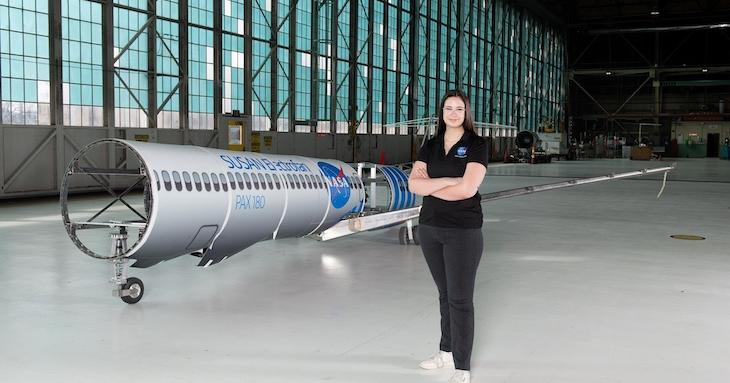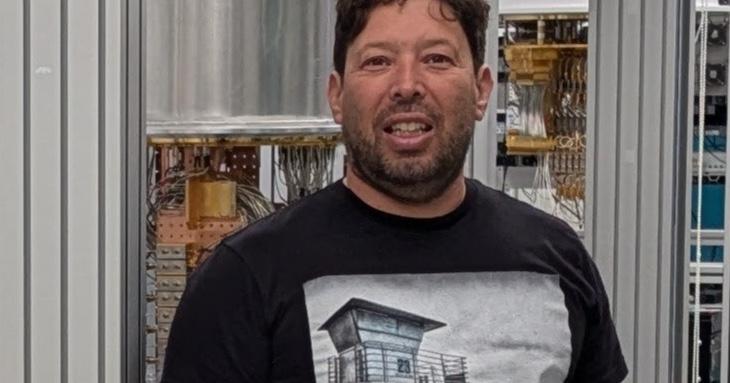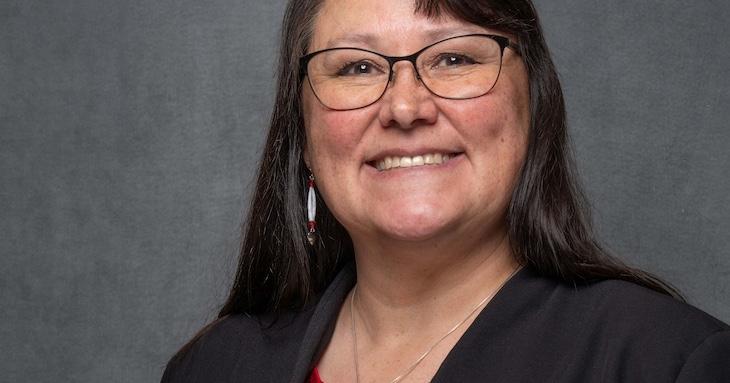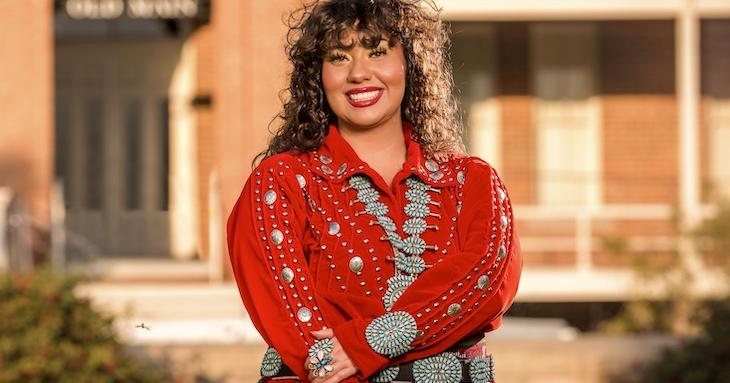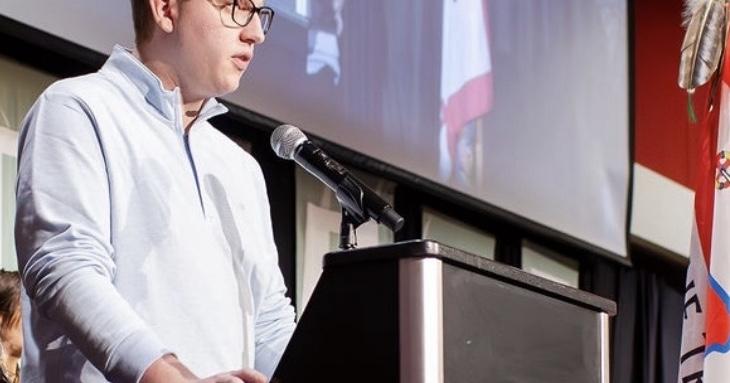-
Sterling Fox Cerda | Luiseño | Chaffey College
As long as I get to be with nature, I’ll be happy. The chaparral biome, here in the California coastal desert, is one of the only environments like it in the world. There’s unique flora and fauna, like California poppies — neon bright orange when they bloom — with cultural significance for our people as they’re medicinal and edible.
-
Abigail Reigner | Comanche Nation | Rochester Institute of Technology
My parents — both teachers — made sure I knew the value of my education and my culture. I grew up in Boyertown, Penn., far from my family in Oklahoma, but staying connected to my community in the Comanche Nation was an essential part of my life. We would often spend summers in Oklahoma, where I was immersed in our culture and traditions.
-
Marcus Alaula’ikawai Nahalea | Navajo and Native Hawaiian | Stanford University
Tótsonii nisłį´ Hawaiian bá shíchíín. Hask’ąą hadzohí éí dashícheii dóó Hawaiian éí dashinálí.
I am Navajo and Native Hawaiian — two cultures defined by their advocacy and resilience. They fight for their responsibility for the land. This value deeply shapes my identity and my career goals. -
Stefani Zaira Martinez | Village of Kotlik | University of Alaska Anchorage
I live in Alaska where I’ve spent many summers fishing with my family near Kenai. I’ve seen that here in Alaska, the health of the land and animals is directly related to the well-being of the rural population. Now, I am halfway through my studies at the University of Alaska Anchorage, where I major in chemistry. I hope to use my knowledge to bring about desperately needed improvements for the land.
-
Dylan Bauman | Muskowekwan First Nation University of Saskatchewan
As kid, I enjoyed Legos, building things, and playing in the sand and dirt. Now I get to do that full time. I finished my degree in civil engineering last spring at the University of Saskatchewan (USask), and I’m currently on a high-rise project for Graham as a project coordinator. These projects are hugely complex works of art. A big part of the job is the coordination between engineering, architects, and skilled trade workers.
-
David Snow | Lac du Flambeau Band of Lake Superior Chippewa Indians | Rigetti Computing
David Snow has a cool job. In fact, his work is supercool. He’s a cryogenic engineer with Rigetti Computing, a company based in Berkeley, Calif., that designs and builds quantum computers that run at near absolute zero — roughly minus 460 degrees Fahrenheit.
-
Roylene Comes At Night | Blackfeet Nation | USDA Natural Resources Conservation Service
Right place, right time? For Roylene Comes At Night, a decision to compete in NAISEF (the National American Indian Science and Engineering Fair sponsored by AISES) came at just the right time.
-
Nadira Mitchell | Navajo Nation | U.S. Forest Service and Wildlife Society
Growing up in Tucson, Ariz., surrounded by the Sonoran Desert, Nadira Mitchell was always interested in the natural world. As a child, she remembers collecting snails after the monsoon rains and taking notes on her observations. “My mother would always remind me to thank them for their knowledge,” says Mitchell. “She instilled within me a love and respect for all animals and other living beings, rooted in our Navajo culture.”
-
Jayson Pomfret | Métis Nation of Ontario | Queen’s University
Jayson Pomfret is on his own unique path. A proud member of the Métis Nation of Ontario, he is a fourth-year health sciences student at Queen’s University in Ontario, specializing in the physiological basis of health and disease. With a deep-rooted passion for medicine and advocacy, Pomfret has dedicated his academic journey to understanding the intricacies of the human body while simultaneously maintaining a strong commitment to helping Indigenous communities.
-
Jenny Slagle | Yakama Nation | Restaurateur/Entrepreneur/Food Security Advocate
It began as an Indian taco stand at the annual Gathering at the Falls Pow Wow at Riverfront Park in Spokane, Wash. Today that taco stand has grown into two locations of Indigenous Eats, a restaurant co-owned by Yakama Nation member Jenny Slagle. She and her husband and business partner, Andrew, operate the two Spokane eateries, where they offer a menu of “Native American comfort food.”
The students and professionals profiled in Winds of Change share their journeys and some tips they’ve picked up along the way. Our AISES members come from diverse backgrounds and far-flung places, and not all take the traditional route to higher education. You will probably see some elements of your own story reflected in these profiles. With the continuing support of family, friends, and AISES, these students — and you — are on the path to success.


